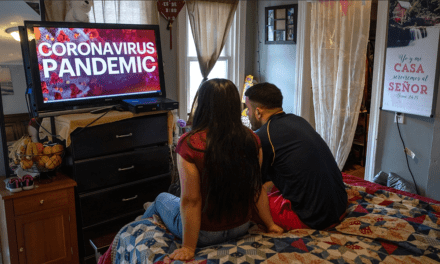Broadcasting, Reloaded.
Resurgences, Resistances and Rearrangements
of Mainstream Television and Media in the Digital Arena
Bologna, Dipartimento delle Arti – DAMSLab, May 18th-19th, 2020
Organized by Luca Barra, Paola Brembilla and Veronica Innocenti (Università di Bologna)
In collaboration with the ECREA Television Studies section
Media Mutations, the international conference on audiovisual media hosted by the Department of the Arts of Università di Bologna, is inaugurating its twelfth edition. The topic will be the strong, somehow unexpected persistence of broadcasting and mainstream TV and media within the digital environment.
In the past few years, not only have streaming services (as Netflix and Amazon Prime Video) become the driving force of a shift in the television and media business, they have also been at the centre of seminal researches and debates in television and media studies, mainly pointing at the notions of digital revolution and disruption. More recently, the launch of new platforms by other providers (like Apple, Disney, and HBO) has rekindled these debates, which have channelled the OTT promotional rhetoric pointing at the ultimate death of broadcasting, both as a business model and as a cultural form.
However, in these very years, there is wide proof that classic television and traditional broadcasting is bigger than ever. It has returned to the centre of the digital scenario, because of its ability to bring together large and diversified audiences, considered valuable both at a cultural and at an economic level. It is still resisting the competition of on-demand services, balancing its time and space limitations with different experiences, like the creation of events and the focus on TV genres that are not scripted series – e.g. reality programs, factual entertainment, talk shows. More importantly, it has contributed to a wider re-arrangement of the media system, with the digital players trying to imitate the strengths of broadcasting, while traditional media are adapting to the new challenges. As far as business is concerned, production, distribution and circulation are growing, in the US as well as in Europe and in several other markets around the world, while ad-based models are proving to be effective in both the broadcasting and digital business model. Content-wise, network series and shows are still the pillars of schedules for free-to-air television, as they are becoming more and more relevant in terms of ratings, production values, socio-political mandates, franchise expansion. The OTT libraries are filled with network content, thanks to huge deals for retransmission and exclusive runs, while deals between broadcasting operators (PSBs, commercial networks, pay television) and digital platforms are increasingly commonplace. This shows a market that seems based on co-dependency between broadcasting and online platforms rather than straightforward competition, and on the hybridization of mainstream and niche rather than on a neat shift from broadcasting to narrowcasting.
Drawing on these considerations, the conference aims to bring the attention back to broadcasting, in order to assess its current state, to explore the recent evolutions of the free-to-air television business in the light of its manifold relations with OTT players, to check the parallel resurgence, resistance and rearrangement of other broadcasting-based media (such as radio), as well as to understand the attempts and experimentations to bring the mainstream back in customised, niche-oriented digital services. In line with its founding purposes, the conference wishes to serve as a basis for discussing methodologies, sharing research results and promoting a multi-disciplinary approach in a global perspective.
Media Mutations 12 encourages submissions that cover the following subjects and topics:
- The crucial role of broadcast television within a digital market
- Strengths and weaknesses of network television vs. digital platforms
- Mainstream shows, genres, events and their role
- The main changes and recent trends in broadcasting business models
- The redefinition of public service broadcasting in the contemporary digital arena
- Changes in the production, distribution and narrative aspects of broadcasting content
- Evolutions and persistence of audience viewing practices
- The relations and interconnections between broadcasting and OTT players
- The redefinition of radio in the transition to digital broadcasting
- Theoretical, philosophical and methodological approaches to studying broadcasting
- Historical perspectives of the evolution of broadcasting
- Single national and transnational case histories on broadcasting systems and media products
The official language of the conference is English. Abstracts (300-500 words for 20-minute talks) should be sent to mediamutations.org@gmail.com by February 16th, 2020. Please attach a brief biography (maximum 150 words) and an optional selected bibliography (up to five titles) relevant to the conference theme. Notification of acceptance will be sent by March 16th, 2020. A registration fee will be requested after notification of paper acceptance (€80 for speakers and professional attendants; free conference admission for students).
This Conference is financially supported by Centro Dipartimentale La Soffitta and Dipartimento delle Arti, Università di Bologna, in collaboration with DAMSLab.





